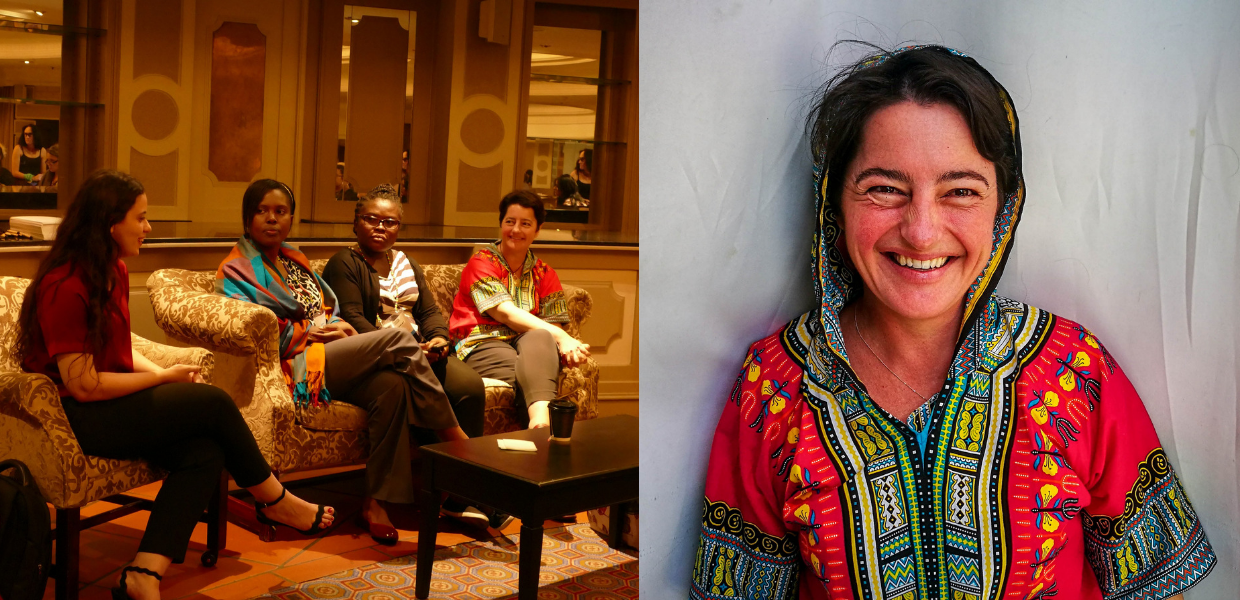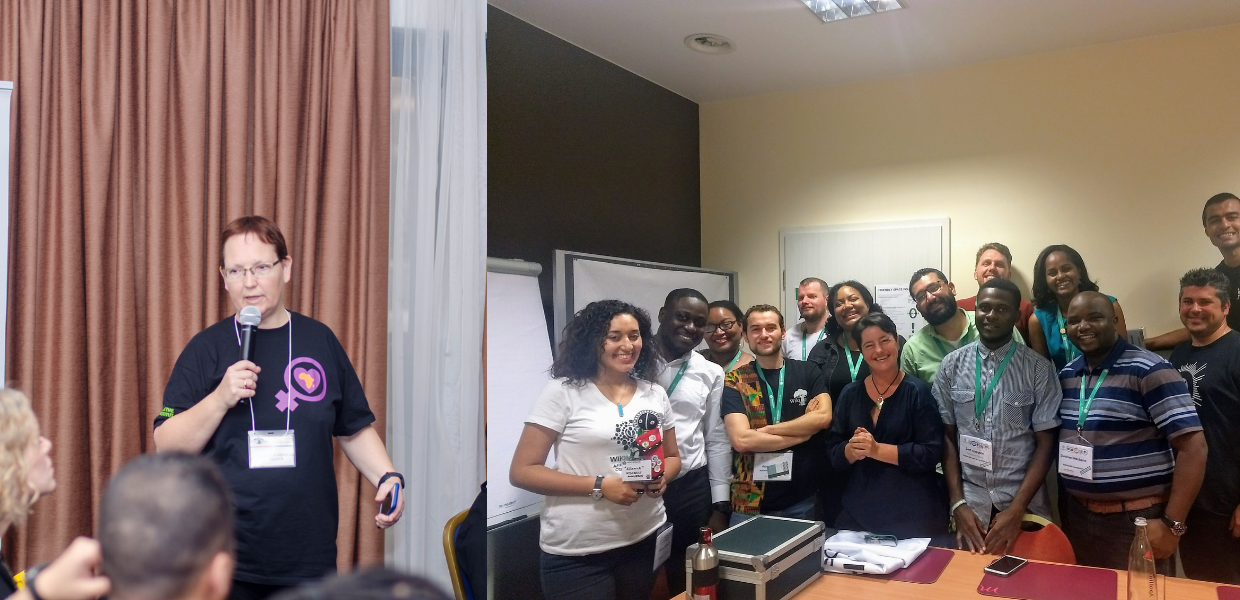Can you tell me about Wiki Loves Women?
Isla and Florence: On the surface, Wiki Loves Women is a content creation and aggregation project that is and has been operating in six countries in East and West Africa (and beyond). At its heart, the project is a way of developing the skills and capacity of the local volunteer groups whilst working on several acknowledged gaps in both content and participation: subjects relating to and relevant for women from Africa; and contribution from Wikipedians across Africa.
From a content point of view, only 0.318% of all biographical entries on Wikidata (the data repository for the Wikimedia projects) are about African women. On Wikipedia, of all biographies about African people, only 17.9% are about women. With regards to contributions - less than 20% of (all) Wikipedia contributors are female (the global community has long-acknowledged the gender gap as a problem). But in sub-Saharan Africa, when combined with the contributor gap - ‘only 25% of edits to subjects about the Sub-Saharan region come from within the region’. This lack of information about women online across the continent is also reflected in the mainstream media. Wiki Loves Women works to draw attention to this societal imbalance.
The Wiki Loves Women project encourages the contribution of content (articles, images, data) that celebrates women of excellence, highlights issues, and reflects the daily realities faced by women and girls across Africa. The teams of Wikipedians in the six countries (Cameroon, Côte d’Ivoire, Ghana, Nigeria, Tanzania and Uganda) work with civil society and gender equality organisations to contribute freely-licensed information, texts, images and media to Wikipedia and other Wikimedia projects.
How did you get into your current field?
Florence: 20 years ago, I loved playing a video game called Alpha Centauri. And I was sometimes going online to read game tips on discussion forums (they were not so numerous online back in 2000ies). Whilst chatting with another English-speaking Canadian player, he introduced me to the very newborn Wikipedia,(less than a year old back then) and obviously totally unknown. It took me over a month to dare do my first edit. Then I fell into it and never got out. Initially, completely volunteer-based and anonymous, I soon joined or launched non-profits related to that field, and I later came to see it as my main professional activity.
Isla: My academic training was in the fine arts, but since University (too many years ago to still seem relevant) the core of my work has been finding ways to use communication, the arts and written content to shift the negative perceptions of Africa globally, as well as challenging our self-defeating perceptions from within the continent. Being introduced to WikiAfrica in 2011 by Iolanda Pensa seemed to be a culmination of all the work I had been doing previously. I love the work we do. It is important and has become a guiding element in a definite shift in perception both on the continent and globally.
What are the challenges for women in the workforce today? What can be done to improve matters?
Isla: My experience is based on the African continent and varies from country to country and industry to industry. In my experience, although an amazing amount of progress has been made with regards to equal opportunities for women in the workforce across Africa, and despite the not-perfect positive discrimination efforts in southern Africa, there remains a definite paternalistic, male-oriented focus across all industries. It is a mindset that is very insidious and difficult to shake.

.png)

